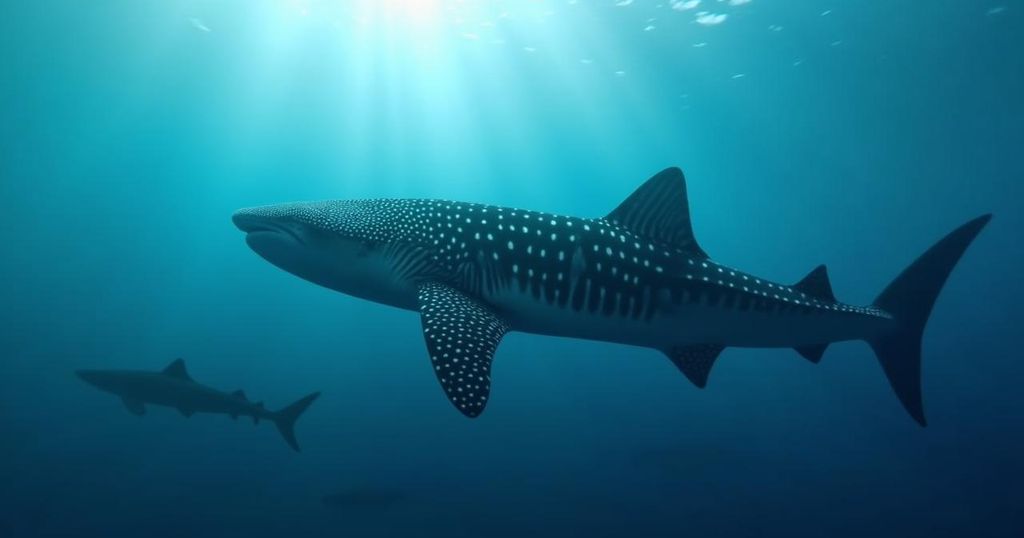Increased Shipping Collisions Threaten Whale Sharks Amid Climate Change

A recent study in *Nature Climate Change* indicates that the threat of shipping collisions for endangered whale sharks may significantly increase due to warming ocean temperatures, with a projected potential rise in encounters with large vessels by 15,000 times by 2100. The research notes substantial habitat losses under high emissions scenarios, particularly in Asia, while sustainable practices could lead to some habitat gains in Europe. The study emphasizes the importance of incorporating climate change factors into conservation discussions.
According to a recent study published in Nature Climate Change, researchers from the University of Southampton and the Marine Biological Association (MBA) have raised concerns about the future of whale sharks as global warming potentially increases their risk of collision with large vessels. As climate change alters ocean conditions, it is predicted that these already endangered creatures will be forced to adapt to new habitats that intersect with busy shipping lanes. The study indicates that the likelihood of whale sharks encountering large ships could escalate by as much as 15,000 times by the year 2100. Lead author Dr. Freya Womersley remarked on the severity of these habitat shifts, particularly under high emissions scenarios, stating that some areas might lose over 50% of their core habitats. This loss is projected to be most significant in Asian waters, while sustainable development scenarios that align with a maximum temperature rise of 2°C might allow for some habitat gains, especially in Europe. The research incorporated whale shark satellite-tracking information alongside global climate models, exploring three distinct climate outcomes. Notably, regardless of shipping growth projections—which could see traffic increase by up to 1,200% by 2050—the study found an increase in ship encounters under all future climate models. Some areas shifted towards less trafficked regions, such as certain coastal waters of Mexico, but the overall trend indicated a higher likelihood of whale shark and vessel interactions. Dr. Womersley emphasized the indirect impact of climate change on marine species, underscoring the necessity of integrating climate considerations in endangered species management strategies.
The article tackles the consequences of climate change on marine biodiversity, specifically focusing on whale sharks, the largest fish species in the world, which are particularly vulnerable to human activities including shipping. With rising ocean temperatures and changing habitats, this research highlights the urgent need for effective management strategies to mitigate the risks faced by these endangered creatures. It addresses how climate-driven habitat redistribution may correlate with increased shipping traffic, posing significant threats to whale sharks and potentially leading to increased ship strikes as they navigate new environments.
In conclusion, researchers predict that global warming will exacerbate the threats faced by whale sharks due to increased interactions with shipping traffic. The findings indicate that without substantial efforts to mitigate climate change, the safety and habitat of these vulnerable marine animals could be severely compromised, stressing the importance of proactive measures in conservation strategies.
Original Source: phys.org






